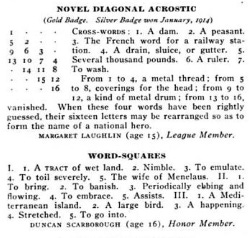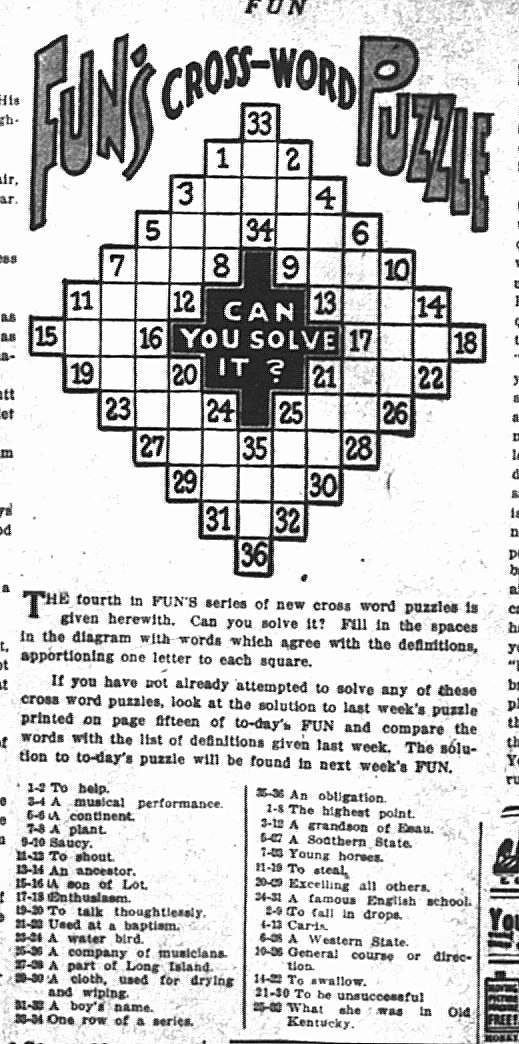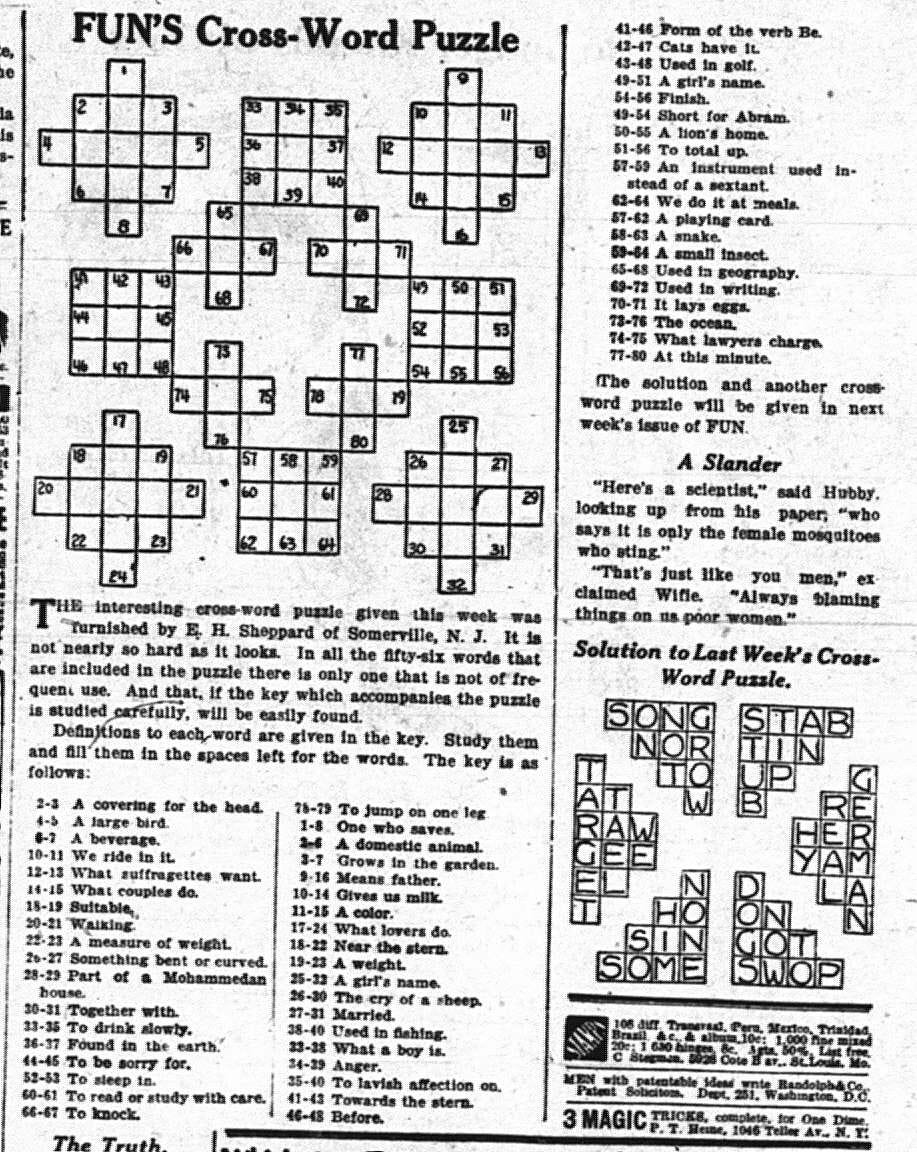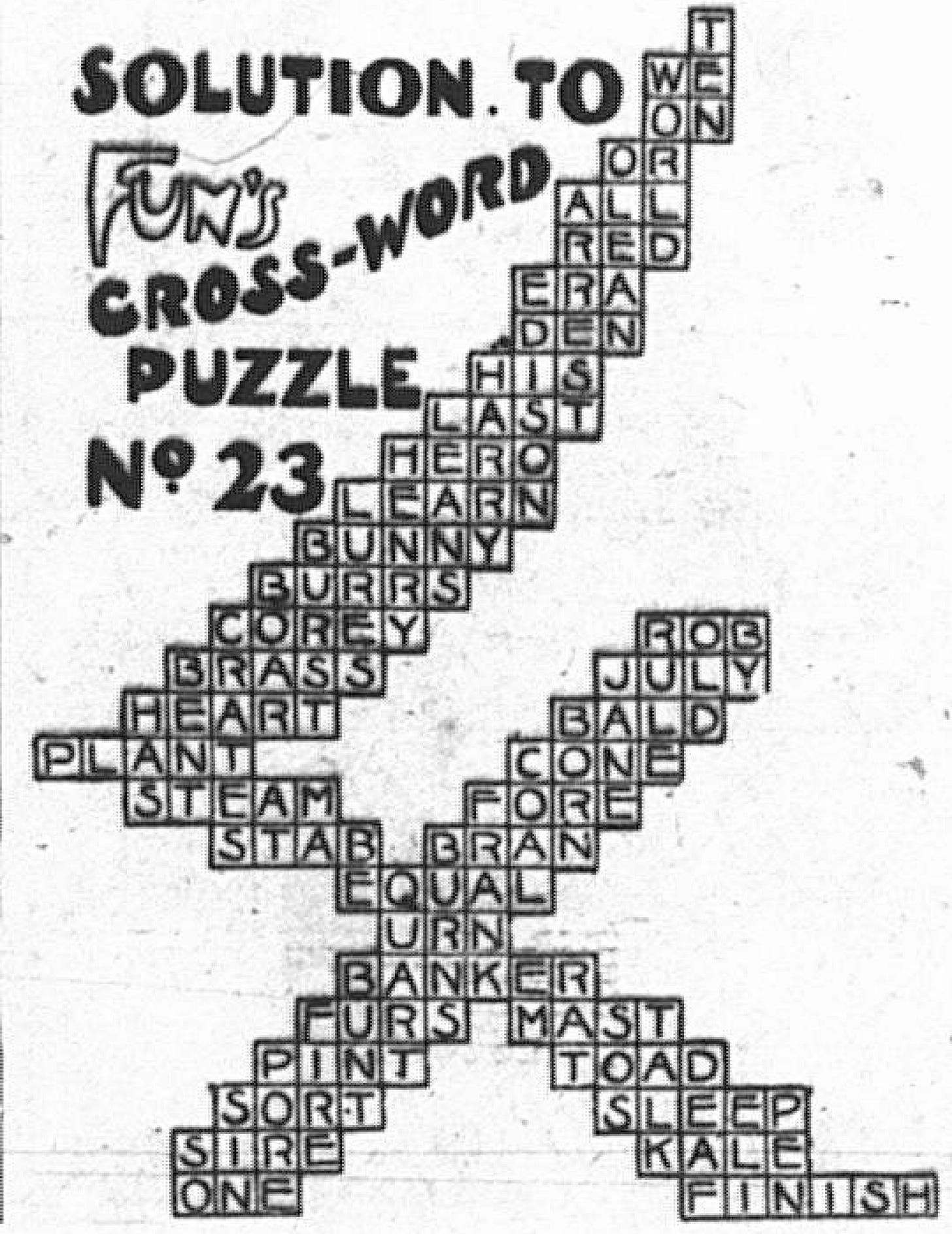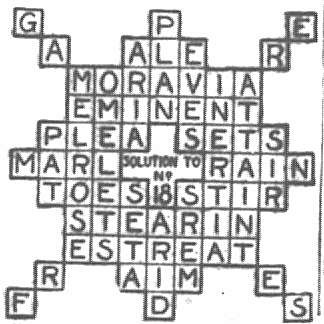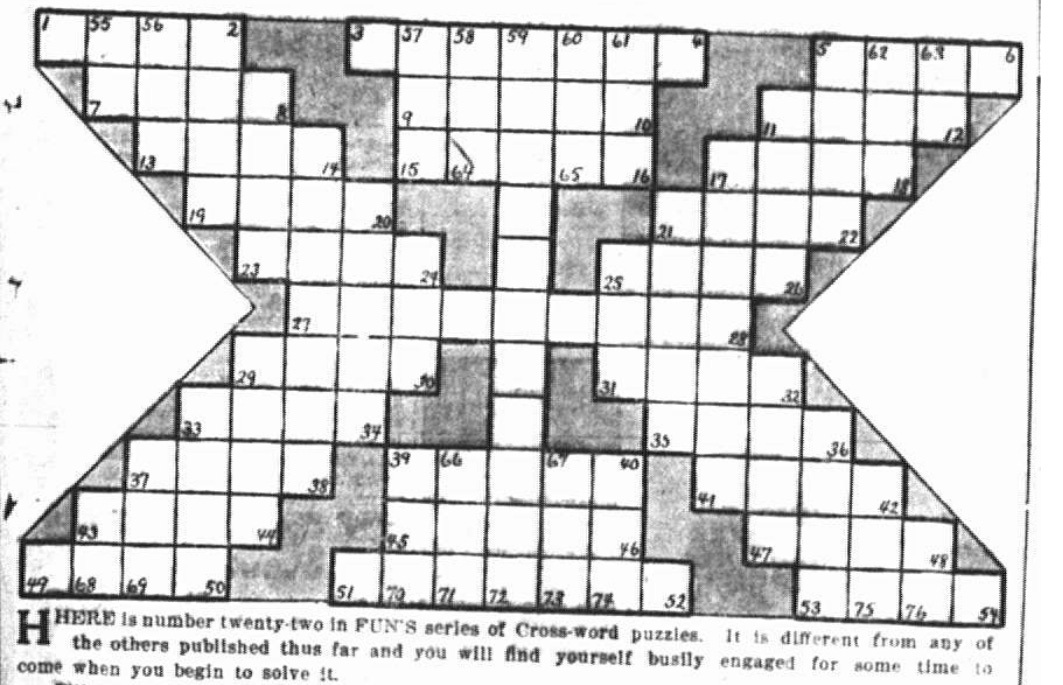1914: The Year in Crosswords
Getting bent out of shape.
There are many stories about the alleged origins of crossword puzzles in 1913, but far fewer about their development. Inspired by my own “Year in Crosswords” series of year-ending articles, I thought I’d try to fill that gap.
The early history of crosswords is mostly the history of New York World crosswords. The World was a well-known paper and newspapers often imitated each other, so one might expect crosswords to blossom quickly. However…
Though the puzzles were popular with readers, they were decidedly unpopular with editors. Crosswords were difficult to print and were plagued with typographical and other errors. In fact, no other newspaper wanted any part of them. So for the next 10 years, if you wanted to work on a crossword puzzle, you had to buy the World. ~Best of Uncle John's Bathroom Reader (BUJBR)
“Uncle John” is overstating things a bit. Crosswords did appear in a few other publications before 1924. And the name “cross-words” appeared elsewhere in 1914—St. Nicholas Magazine, volume 41, issue 2. Margaret Laughlin published a “novel diagonal acrostic” and used the term “cross-words” for across answers, while the other answers traveled not straight down, but diagonally down and to the right.
Margaret was 15 and a “League member,” which probably referred to the Eastern Puzzler’s League (later the National Puzzler’s League), which had a lot of underage and female members then. The puzzle lacks a grid, but it’s still quite close to the crosswords we know.
It wasn’t until 1914 that even the New York World started using the term cross-words. The first three installments called the feature a word-cross. But one of those notorious typos, in the fourth installment, turned out to be a happy little accident:
BUJBR is more right than wrong. Editors did find crossword production a headache, and most publications would have nothing to do with it until the 1920s. If Arthur Wynne’s invention hadn’t been so popular with readers of the World, it would probably have died out within six months, just as its business managers believed it would.
With the seventh puzzle in the series, Wynne foreshadowed the crossword’s fan-supported future:
FUN's cross-word puzzles are apparently getting more popular than ever. The puzzle editor has received from readers many interesting new cross-word puzzles which he will be glad to use from time to time. It is more difficult to make up a cross-word puzzle than it is to solve one. If you doubt this try to make one yourself.
One installment later, a puzzle appeared created by “Mrs. M.B. Wood.”
At first, crossword puzzles all followed the hollow-diamond form above. But once Wynne started showcasing crossword fans’ creations, designs got much wilder:
1914 also saw the creation of the first themed crossword puzzle—the tenth published in the World. The theme was George Washington, in honor of Washington’s Birthday—a holiday now subsumed into President’s Day. My scan of this one is unfortunately poor, but we can see 10 of its 40 clues mention Washington. That’s 25% theme content, not too shabby. You can bump that up to eleven if you count the final down clue, which references Washington’s contemporary patriot, Paul Revere.
Occasional other themes followed in 1914, all seasonally appropriate—there was a “summer fun” theme and a “Fourth of July” theme. These all ran without bylines, as did some other 1914 puzzles. Most likely, any puzzle without a byline is one that Wynne created, though some submissions may have been anonymous, and credits might have been lost here and there in the chaos of early crossword production.
Wynne’s inclination was to shower his contributors with honors—though the World wasn’t about to shower them with financial appreciation. Why pay for the cow when you’re getting all the free milk you can bottle?
Still, the credits Wynne published had a side effect that promoted the crossword’s long-term health. From them, the readers knew that puzzles were coming from New York City, from Somerville, New Jersey—and from overseas. Della Sherry, a European schoolchild, became the first international crossword contributor before the year was out. Crossword fandom may have been small, but it had already crossed the Atlantic.
Next: A micross—followed by a little TV talk!

